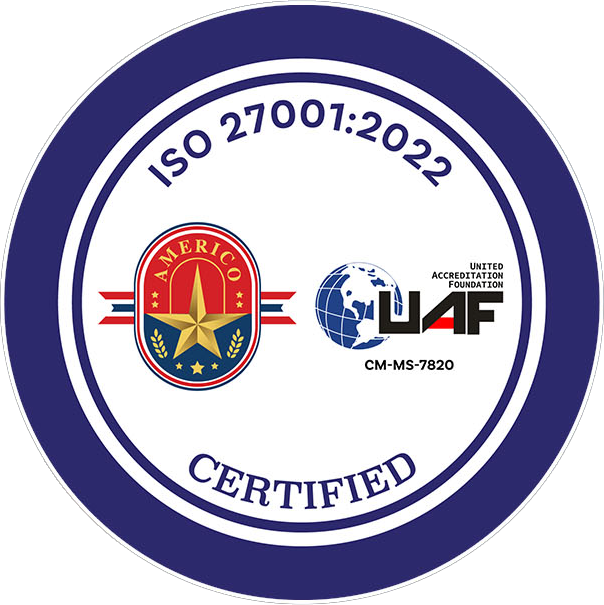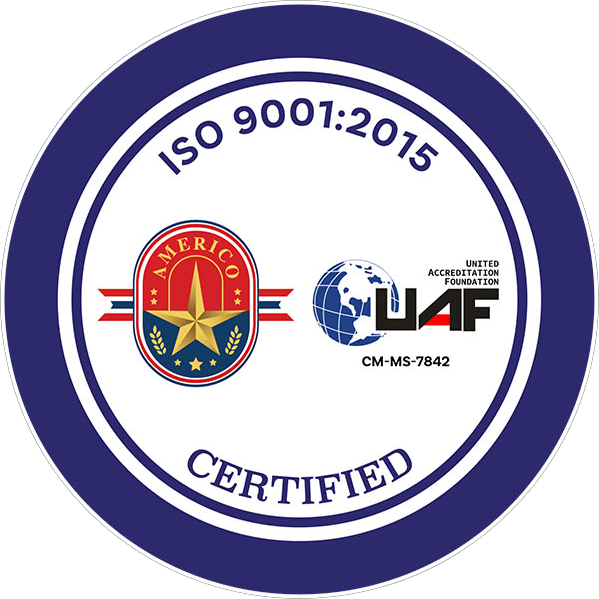
Reclaiming Time and Cutting Costs: Remote Support Strategies for Dental Teams with Rebecca Herring
Fresh from the American Academy of Pediatric Dentistry Trade Show, we sat down with our resident healthcare outsourcing pro, Rebecca Herring, to explore the top questions attendees had, what sparked their curiosity, and the evolving landscape of remote outsourcing in the dental industry. Rebecca Herring is a seasoned dental coach with over 25 years of hands-on experience in the dental industry.
65% of clinics and private practices in the healthcare sector, including dental offices, are now utilizing virtual assistants for tasks like scheduling, patient follow-ups, and billing. Why are more practices turning to virtual assistants for help, and what are some common pain points or challenges dental practices face that a virtual assistant can help alleviate?
Dental practices often struggle with administrative overload, insurance verification, follow-ups, and managing a full schedule. These tasks, while essential, consume valuable time that could be spent on patient care. Virtual assistants help by taking on these time-sensitive tasks so the in-office team can focus on what they do best.
How do virtual assistants contribute to smoother, more efficient operations in key administrative areas?
Virtual Assistants manage patient scheduling by confirming appointments, filling cancellations, and optimizing the schedule to reduce downtime. They can verify insurance eligibility before patient visits, preventing surprises at checkout. With billing, Virtual Assistants handle claims submission, monitor denials, and follow up on unpaid claims, ensuring steady cash flow.
Can you provide some examples of tasks that often overwhelm dental teams, and how can a virtual assistant help?
Certainly! Dental teams frequently feel stretched thin by tasks such as:
- Following up with patients who have unscheduled treatments & are due for recare.
- Managing high call volumes while juggling front-desk responsibilities.
- Preparing daily schedules by ensuring all pre-visit information is complete.
- Tracking accounts receivable and sending payment reminders.
- Verifying insurance eligibility & entering into the practice management system.
A virtual assistant can step in to manage these time-consuming responsibilities, helping reduce stress, improve efficiency, and allow the in-office team to focus on patient care.
- Following up with patients who have unscheduled treatments & are due for recare.
- Managing high call volumes while juggling front-desk responsibilities.
- Preparing daily schedules by ensuring all pre-visit information is complete.
- Tracking accounts receivable and sending payment reminders.
- Verifying insurance eligibility & entering into the practice management system.
A virtual assistant can step in to manage these time-consuming responsibilities, helping reduce stress, improve efficiency, and allow the in-office team to focus on patient care.
What are the biggest benefits dental practices see immediately after implementing virtual assistant support?
Practices report reduced team burnout, improved patient satisfaction, and increased production & efficiency. A Virtual Assistant ensures nothing falls through the cracks, such as missed patient follow-ups or unpaid claims. They also allow in-office staff to focus on patient relationships rather than multitasking.
Difficulty scheduling appointments, poor communication, and stressed staff who may unintentionally come across as rude are among the top patient complaints in dental practices. How can a virtual assistant help improve the patient experience while also reducing onsite team burnout?
Virtual Assistants improve patient communication by promptly answering calls and emails, scheduling appointments, and providing reminders. This consistent, proactive engagement enhances patient satisfaction.
For the onsite team, Virtual Assistants handle repetitive or tedious tasks, reducing stress and enabling them to focus on creating a welcoming in-office environment.
For the onsite team, Virtual Assistants handle repetitive or tedious tasks, reducing stress and enabling them to focus on creating a welcoming in-office environment.
What role do virtual assistants play in helping dental teams focus on high-value, patient-facing activities?
By sharing administrative tasks, Virtual Assistants let teams focus on building trust with patients, discussing treatment plans, and ensuring quality patient care. This shift improves patient communication and practice reputation.
What are the key signs that a dental practice is ready to explore virtual assistant support?
While nearly every dental practice could benefit from additional support, some clear indicators that it’s time to consider virtual assistance include:
- Frequent cancellations or scheduling inefficiencies.
- Long wait times for patients at the front desk.
- Staff complaints about being overworked.
- Missed phone calls
- Frequent cancellations or scheduling inefficiencies.
- Long wait times for patients at the front desk.
- Staff complaints about being overworked.
- Missed phone calls
How can a dental practice determine which tasks or roles are best suited for delegation to a virtual assistant?
Practices should identify repetitive, time-consuming tasks like insurance verification, recall follow-ups, data entry, and claims management. A task audit, which involves listing daily duties and categorizing them by importance, can uncover tasks ideal for delegation.
For our clients, we collaborate closely with your team to clearly define which tasks will be managed remotely, along with how performance will be measured and monitored.
For our clients, we collaborate closely with your team to clearly define which tasks will be managed remotely, along with how performance will be measured and monitored.
What do practices need to have in place — systems, technology, or processes — to ensure a smooth integration of a VA?
We provide access to a highly skilled network of virtual assistants equipped with fast, reliable internet and the latest technology. On the client side, a smooth integration is supported by having:
- Cloud-based practice management software for easy remote access.
- Clear workflows and written standard operating procedures (SOPs) – Our team can assist in developing or refining these.
- Secure communication tools for seamless coordination with the VA.
- A dedicated point of contact to oversee the VA’s integration and provide feedback.
- Cloud-based practice management software for easy remote access.
- Clear workflows and written standard operating procedures (SOPs) – Our team can assist in developing or refining these.
- Secure communication tools for seamless coordination with the VA.
- A dedicated point of contact to oversee the VA’s integration and provide feedback.
What does the onboarding process typically look like when bringing a virtual assistant into a dental practice?
Onboarding usually starts with understanding the practice’s workflows and goals. This involves training the Assistant on specific software, introducing them to the team, and setting clear expectations. Regular check-ins during the first 30–60 days help fine-tune the process and build trust. Our Customer Success Team will partner with you at every step to ensure this process is smooth and efficient.
How can dental practices measure the success of integrating a virtual assistant?
Most of our dental clients notice immediate improvements after onboarding a virtual assistant. Common indicators of success include:
- Reduced workload for in-office team.
- Faster turnaround times on insurance claims.
- Fewer missed patient calls & follow-ups.
- Improved patient satisfaction scores or feedback.
- Reduced workload for in-office team.
- Faster turnaround times on insurance claims.
- Fewer missed patient calls & follow-ups.
- Improved patient satisfaction scores or feedback.
What tips do you have for dental teams to communicate effectively and build trust with their virtual assistant?
Our most successful clients treat their virtual assistants as true members of the team. Just like in-office staff, VAs thrive when communication is consistent, respectful, and collaborative. Key tips include:
- Hold regular check-ins (daily or weekly) to review progress, align on goals, and address any challenges.
- Use communication tools like Slack, Microsoft Teams, or Asana to stay connected and organized.
- Offer constructive feedback and recognize the VA’s contributions to keep them motivated and engaged.
Building trust starts with inclusion—when VAs feel like part of the team, they’re more invested in your practice’s success.
- Hold regular check-ins (daily or weekly) to review progress, align on goals, and address any challenges.
- Use communication tools like Slack, Microsoft Teams, or Asana to stay connected and organized.
- Offer constructive feedback and recognize the VA’s contributions to keep them motivated and engaged.
Building trust starts with inclusion—when VAs feel like part of the team, they’re more invested in your practice’s success.
What would you say to practices hesitant about hiring a VA because of perceived costs or concerns about remote work?
While hiring a VA is an upfront investment, the ROI is clear. They reduce costly errors, improve productivity, and prevent team burnout, which can lead to turnover. Thanks to advancements in secure, cloud-based technology, virtual assistants can work remotely without compromising data security or operational efficiency.
How do virtual assistants ensure data security and compliance with the Health Insurance Portability and Accountability Act (HIPAA)?
We ensure strict compliance with HIPAA by using encrypted communication tools, secure servers, and regular staff training.
Virtual Assistants sign confidentiality agreements and follow the same protocols as in-office staff to safeguard patient information.
Virtual Assistants sign confidentiality agreements and follow the same protocols as in-office staff to safeguard patient information.
What are some common myths or misconceptions about virtual assistants, and how do you typically address them?
Some of the most common include:
"Virtual Assistants can’t be as effective as in-office staff."
– In reality, our virtual team members that specialize in administrative tasks often outperform onsite generalists.
"Training a VA takes too much time."
– While some initial training is required, our virtual assistants are quick learners who adapt rapidly to your systems and workflows.
"Virtual Assistants won’t understand our systems or culture."
– We provide access to virtual assistants who are already trained in dental-specific software and are quick to adapt to the unique needs of your practice. Our unmatched track record speaks for itself—our team members consistently integrate seamlessly into client cultures, as reflected in our best-in-class 5-star Google rating
"Virtual Assistants can’t be as effective as in-office staff."
– In reality, our virtual team members that specialize in administrative tasks often outperform onsite generalists.
"Training a VA takes too much time."
– While some initial training is required, our virtual assistants are quick learners who adapt rapidly to your systems and workflows.
"Virtual Assistants won’t understand our systems or culture."
– We provide access to virtual assistants who are already trained in dental-specific software and are quick to adapt to the unique needs of your practice. Our unmatched track record speaks for itself—our team members consistently integrate seamlessly into client cultures, as reflected in our best-in-class 5-star Google rating
How do you see the role of virtual assistants evolving in the dental industry over the next few years?
Virtual Assistants will become integral to practices as remote work continues to grow. They’ll handle increasingly complex tasks, like patient treatment coordination, advanced insurance negotiations, and even AI-driven data analysis, helping practices stay competitive.
What’s one piece of advice you’d give to a dental practice considering a VA for the first time?
Start small – delegate a few repetitive tasks and build trust with your VA. As you see the results, you’ll realize the transformative impact they can have on your team and practice.



